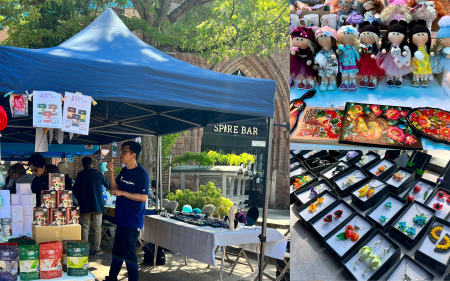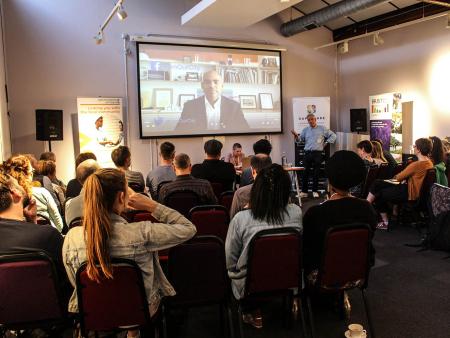
CodeDoor scholarship launching in UK
We are working with CodeDoor to educate refugees and migrants in coding. These under-represented groups could be the answer to addressing the skills gap within the technology industry.
The tech industry is constantly evolving and expanding, creating a constant demand for a workforce who keep up with its evolution. Fulfilling this demand requires thinking outside the box, and traditional recruitment routes, and encouragement for those groups who may have previously been under-represented in this sector, to ensure that the industry is able to continue to expand.
There are concerns that a skills gap may affect the industry if there are not enough newcomers wanting to work in this area. A report from Randstad outlines that “due to a shortage of professionals who are suitably trained for IT jobs, companies providing digital products and services are struggling to find enough people with the skills they need”. One reason for this skills gap within tech roles is the under-representation of groups such as the BME community, refugees, migrants and women.
Working with employers is the key to ensuring these ‘hard-to-reach’ groups are given the opportunity to be a part of the workforce. And now in 2018, slowly but surely, these under-represented groups are becoming more involved within the tech industry.
An initiative that has seen success in Germany is CodeDoor, a company providing scholarships in coding to refugees, migrants and women. They empower people to build their coding skills through a starter course, followed by a nanodegree. They also have many connections with businesses in the tech industry, who they look to connect learners with on completion of the course. This not only gives students the ability to gain employment, but it also gives businesses confidence when hiring a candidate that they will have the correct skills and abilities for the job.
Many of the people from refugee backgrounds who want to get into these roles are highly skilled and motivated individuals. For example, a recent conversation with Khalid* who has expressed his interest in the CodeDoor project, outlined how he has “worked for 10 years in [his] home country as an IT manager for several different companies” and has extensive knowledge of the technology industry. He is keen to continue his career by focusing on coding, however, he’s not been acknowledged by companies he’s approached. The CodeDoor scholarship will give him the opportunity to be recognised for his skills and be able to contribute to the industry.
How CodeDoor works
There are 5 simple steps to complete the process of the CodeDoor scholarship:
1. Application process
2. Key training (pre-entry and assessment)
3. Scholarship on the nanodegree
4. Match to potential employees
5. Become a tutor
The amazing thing about the CodeDoor scholarship is that no previous programming/coding experience is necessary, just an aptitude towards technology and the ambition to pursue a career in this ever-evolving sector. The ‘Key training’ part of the process allows students to find out more about coding before committing to the nanodegree; a kind-of ‘try before you buy’ approach.
Having made their successes in Germany, CodeDoor are now launching a UK pilot scheme in Birmingham. ACH have partnered up with them to give them access to our training facilities, tutors and equipment. We are also building relationships with many local employers to enable students to get access to jobs in this and other sectors.
Already, there has been an inspiring amount of interest gained from referral agencies, our current tenants and the public. If you or someone you know would like to know more or get involved with us, please contact marketing@ach.org.uk.
To find out more about work with businesses visit https://www.ach.org.uk/businesses


